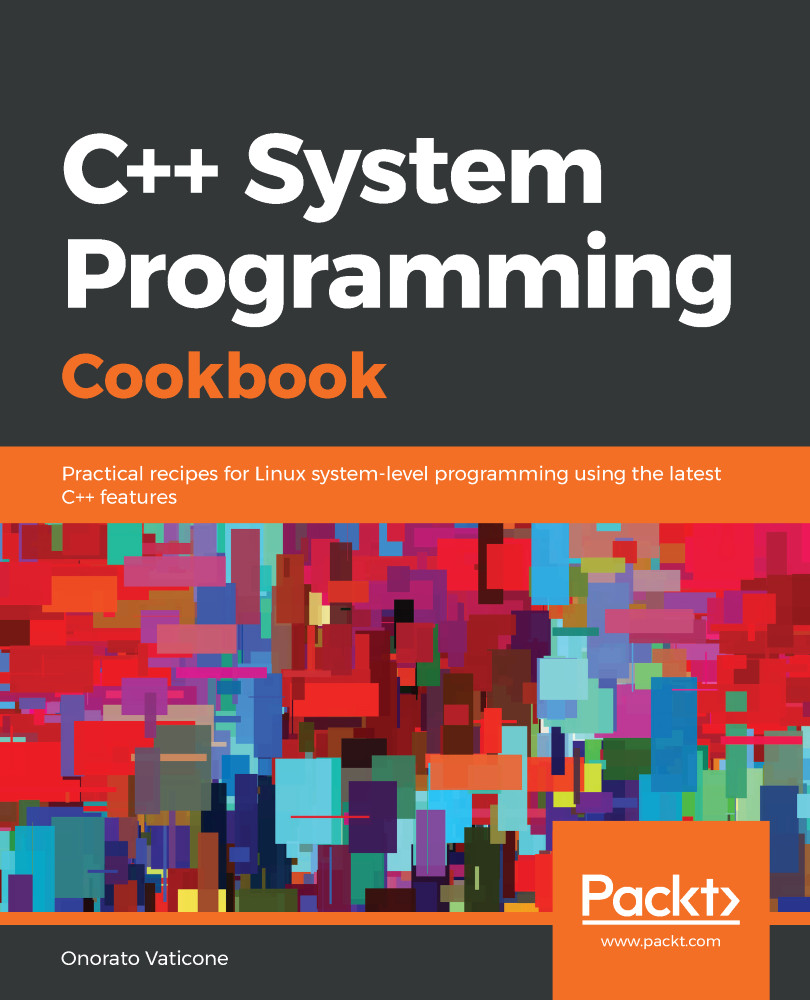In order to let you start using the programs immediately, we've set up a Docker image that has all the tools and libraries that we'll need throughout the book. It is based on Ubuntu 19.04.
In order to set it up, follow these steps:
- Download and install Docker Engine from www.docker.com.
- Pull the image from Docker Hub using docker pull kasperondocker/system_programming_cookbook:latest.
- The image should now be available. Type in docker images to view the image.
- You should have at least kasperondocker/system_programming_cookbook now.
- Run the Docker image with an interactive shell by using docker run -it --cap-add sys_ptrace kasperondocker/system_programming_cookbook:latest /bin/bash.
- The shell on the running container is now available. Use root@39a5a8934370/# cd /BOOK/ to get...


